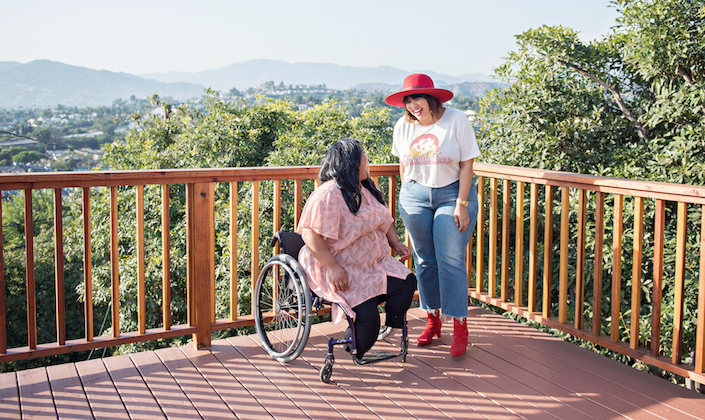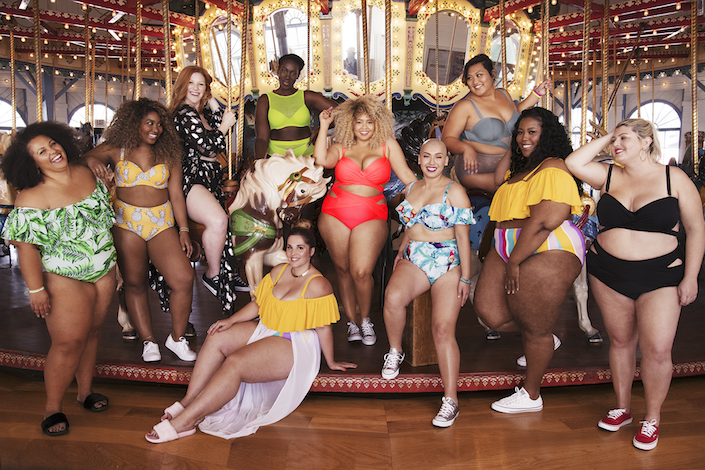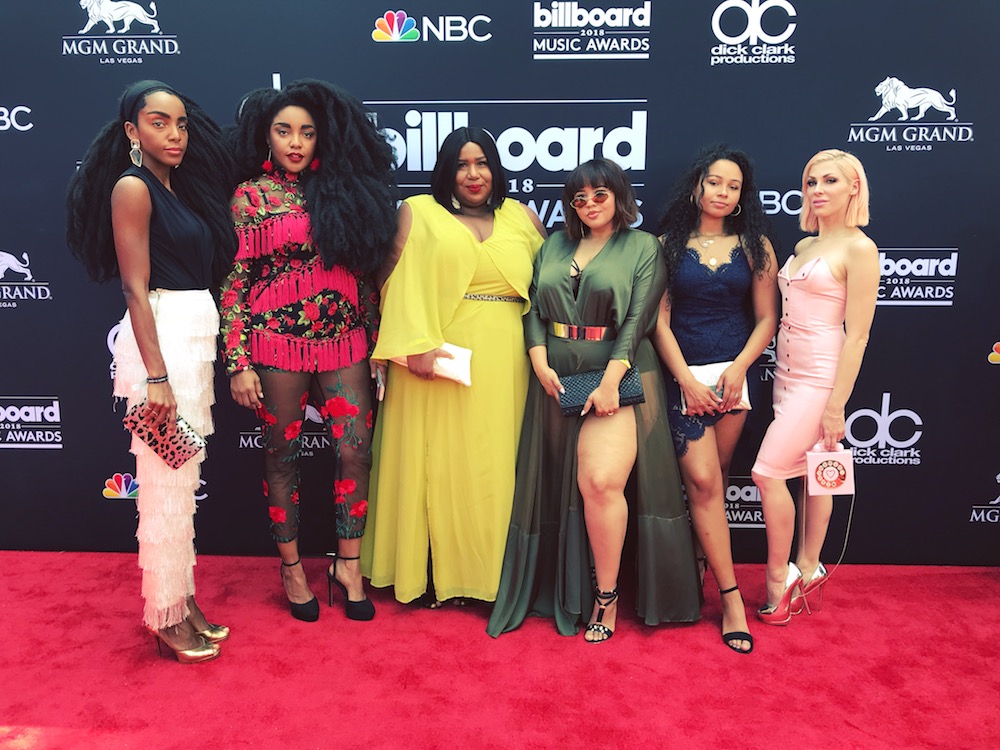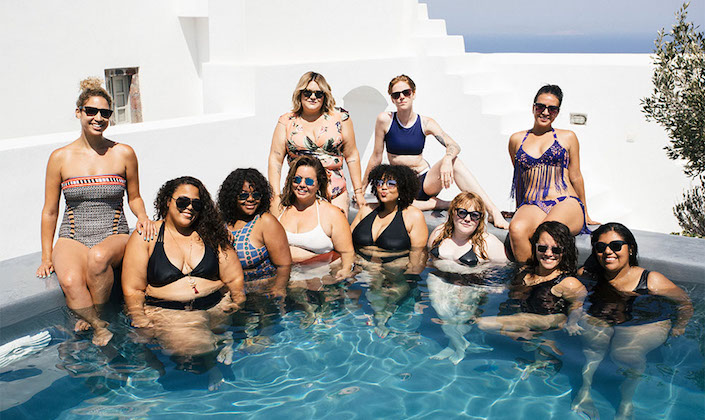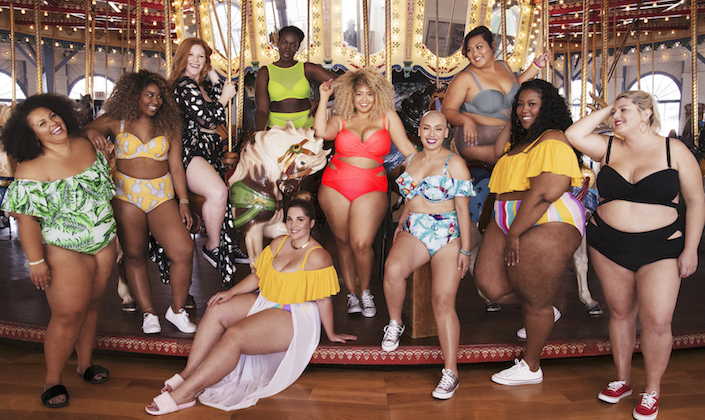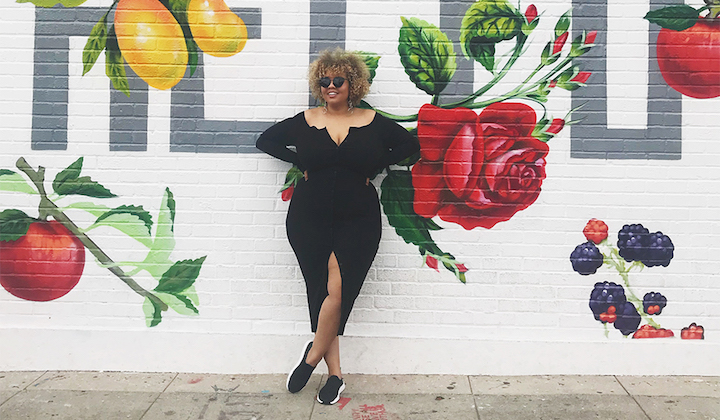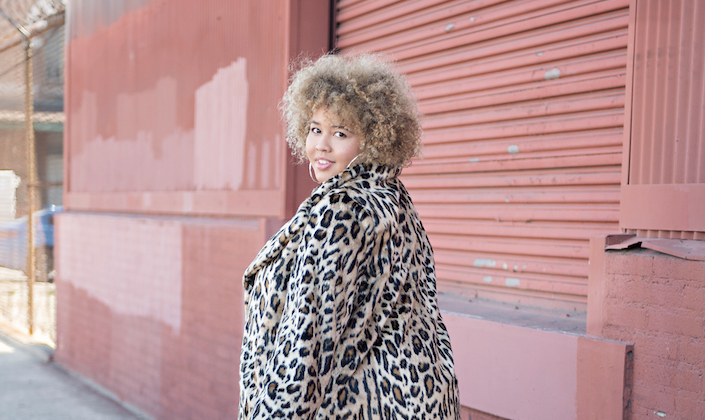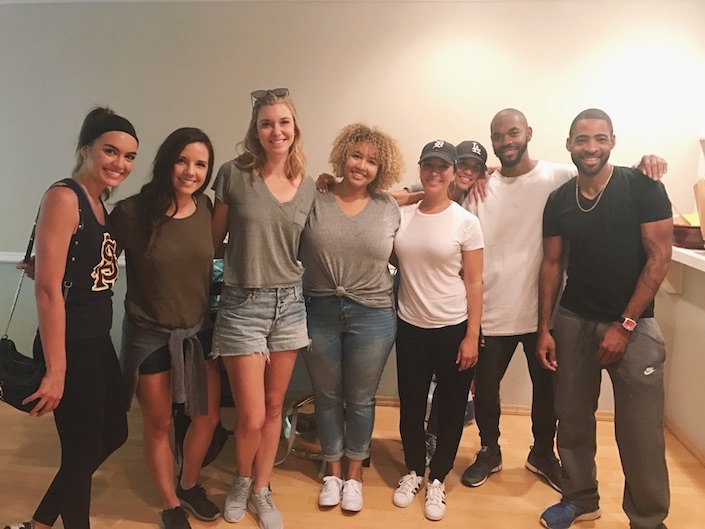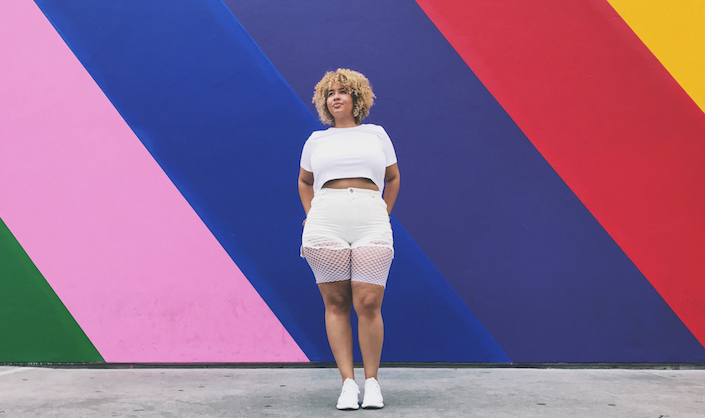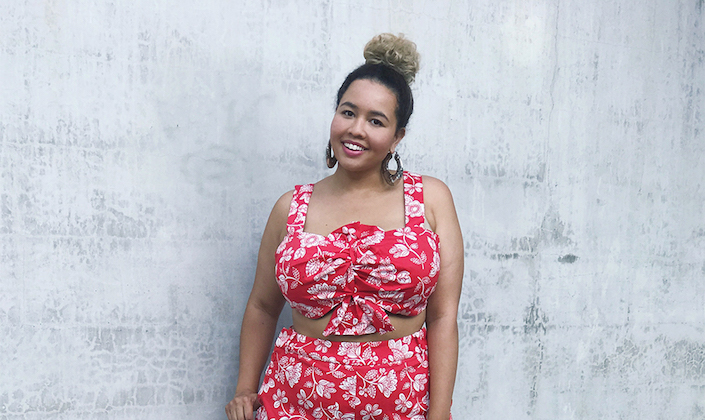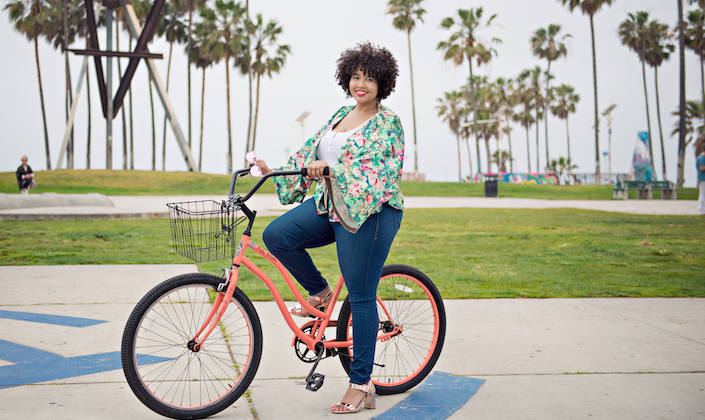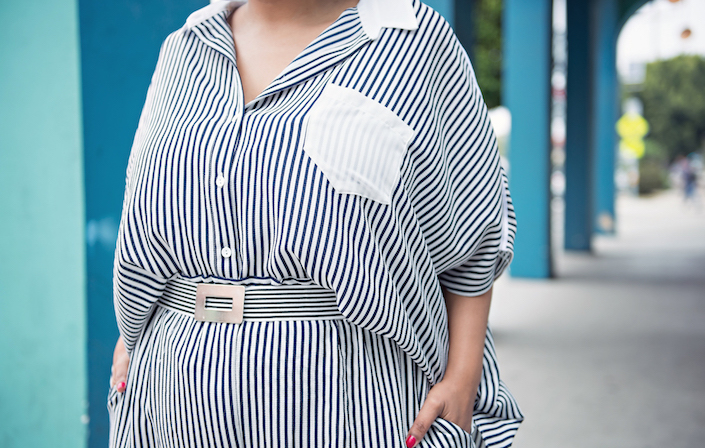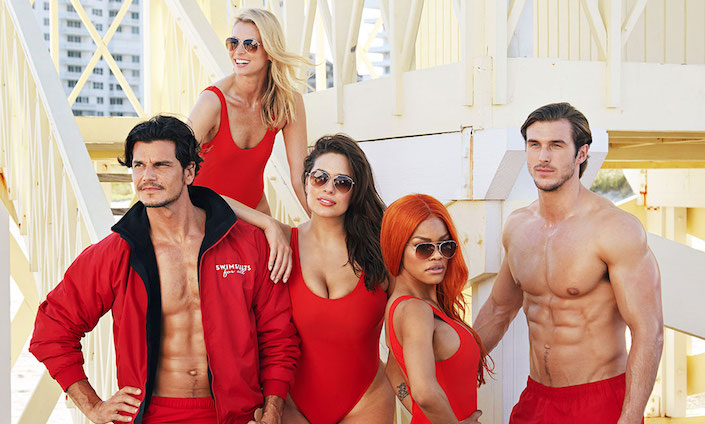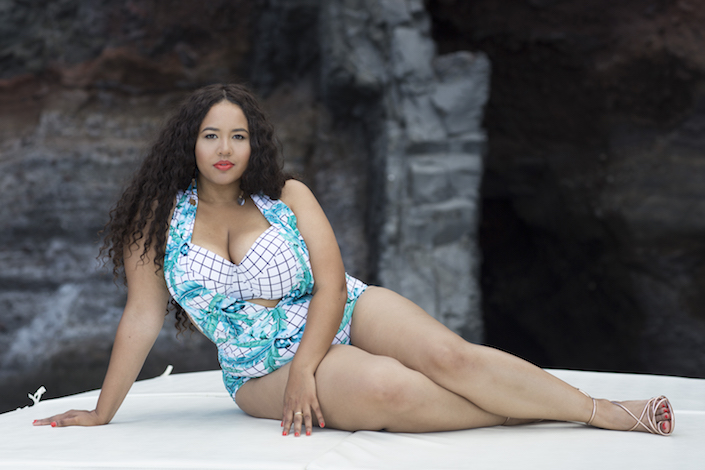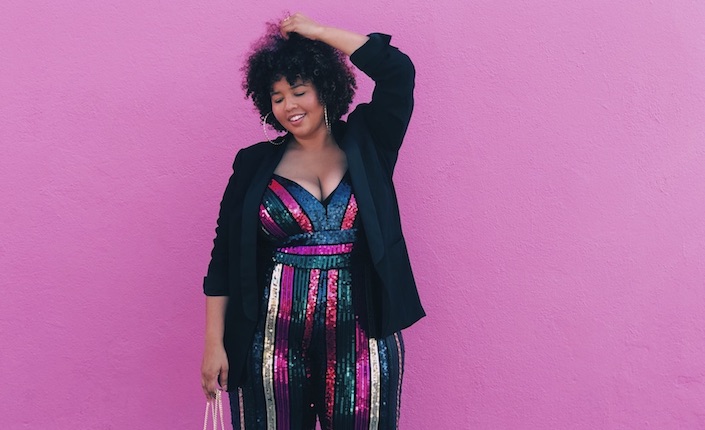
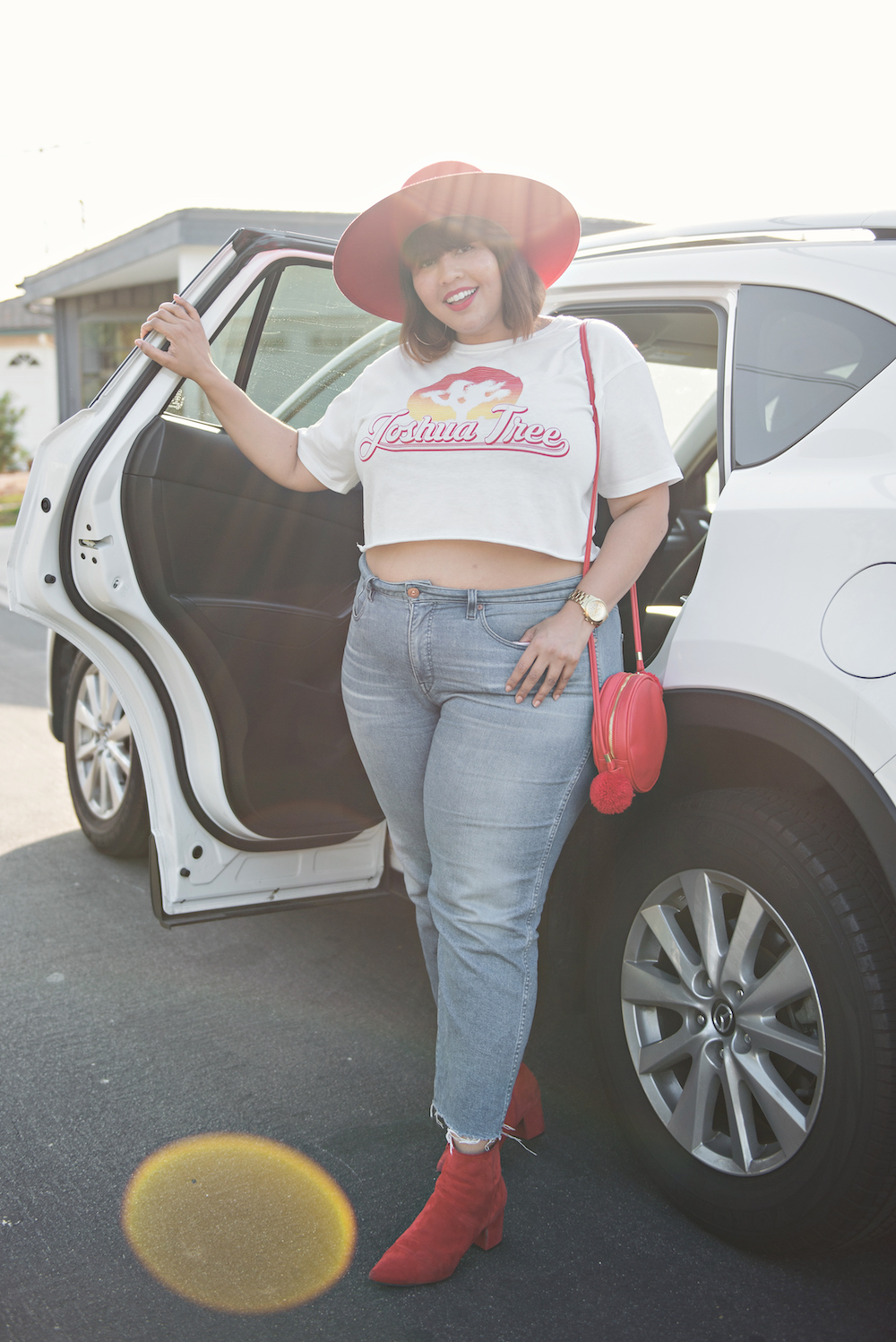
I’m so excited that Uber is proactively prioritizing diversity and putting the spotlight on women and marginalized communities. With programs such as Women of Uber, UberHUE, Los Ubers and more, Uber is taking steps to make sure all voices are heard. Mirroring this initiative, I spent an afternoon this past weekend Ubering around LA to visit and interview three women whose stories inspire me, not only because of their successful professional careers, but also because of their personal politics and commitment to making change. They opened up about their work, obstacles they’ve faced, and what community means to them. It’s up to us to stick together and shed light on people who are making a difference. I hope they inspire you too as much as they inspire me!
Joy Nash
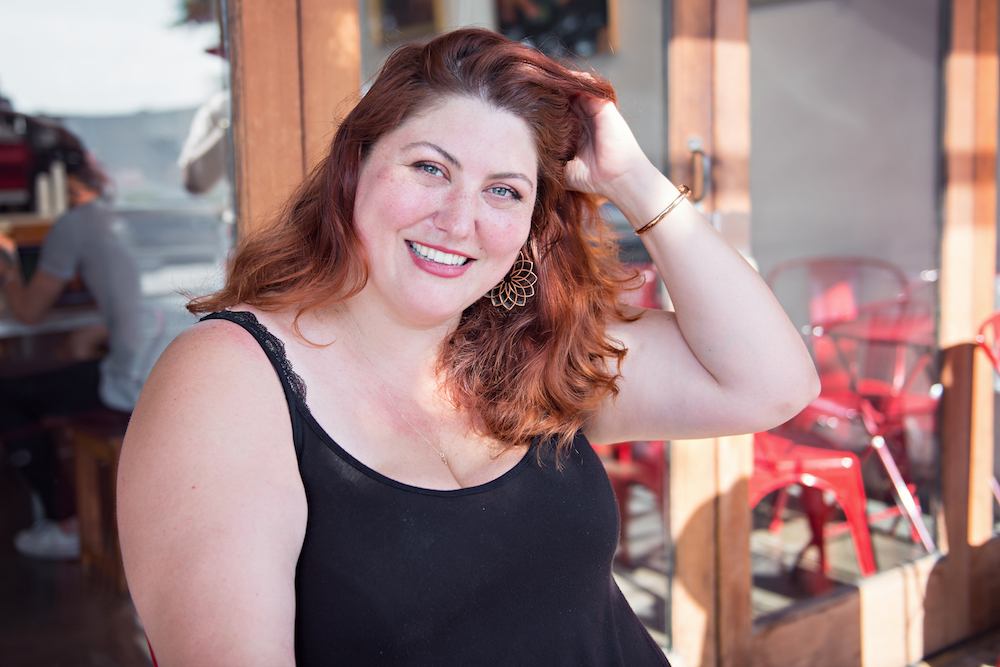
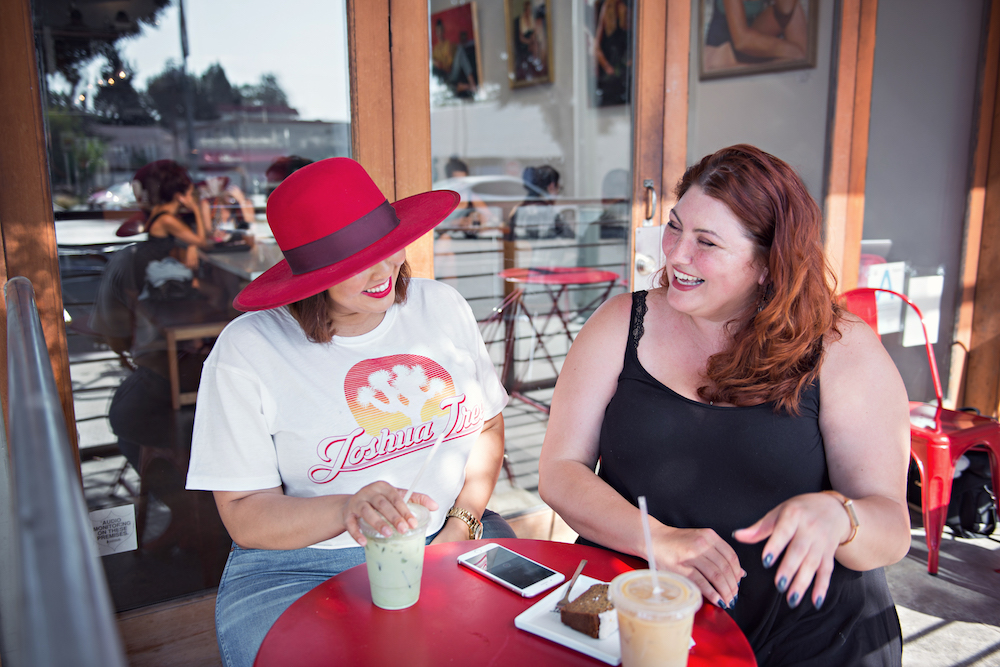
G: Tell us a little about yourself.
J: I’m an actor and I’ve been acting and making my own stuff for probably 17 years…
G: 17 years?! Wow. I knew you years ago from the Livejournal group Fatshionista and your viral video Fat Rant.
J: Fatshionista really blew my mind, I totally received an education from it.
G: Same! It’s literally how I learned about fat politics. That was my introduction. How were you introduced to the world of fat politics and feminism?
J: Fatshionista and also books I found on my own. Fat?So! was the first book I really read about it. And I wrote an academic paper on–I called it fat oppression, but it was basically fatphobia. So yeah, the books Fat?So! And Shadow On A Tightrope.
G: Fast forward a little bit–tell us about how you found out about Dietland and how you auditioned.
J: I saw the posting that they were casting Plum and the character description–she’s a ghostwriter, smart, beautiful, over 200 lbs–and I was like “well, I can do that!” So I found the casting office and went to the address listed and it was a PO box, but I did some more googling and found the actual place. I went with my headshot and a friend I’d met four years previous at a party was working there and she was like “Joy! You might be good for this!” and I was like “That’s what I thought! Here’s my headshot.”
G: So cool! Literally fate! So you mentioned you’ve been doing this for a long time, how did you not lose steam? It’s such a hard industry, specifically for women. How did you stay positive and persevere?
J: I mean it wasn’t all positive all the time–but I’m really stubborn. But also what got me through was making my own stuff. Much like you! Like, if it’s not there I’m not gonna cry about it forever, I’m going to do something and create it. So I wrote stuff for myself, I had a one woman show for ten years. And then eventually I started getting serious about getting paid for my work and seeing it as more as a business, that gave me more of my power back.
G: Amazing! What does community mean to you and how has it played a role in your life?
J: Community is your friends and family and supporters. People who are going to teach you things and bring you up. Growing up I didn’t have a lot of fat friends. It’s totally different now. The year I made the Fat Rant, I found out about a NAAFA conference, and that was maybe the first time I was around all kinds of fat women—going to a pool and seeing a whole bunch of us in bikinis taking over.
G: It’s such a liberating moment when you realize that exists! What’s it like being on a show that centers and empowers women—how does that interact with your real life?
J: It’s amazing, it’s a dream. But this is also my first experience with any of it. A lot of my castmates have been comparing and contrasting it to other shows and saying how incredible it is. To me it feels like a lot of my conversations with my friends and things we’d talk about anyway and it’s like “Why wouldn’t we put this on TV?”
G: That’s how I feel, just as a viewer. I feel like it’s never been done. What are your thoughts about the Me Too movement and how Dietland plays a role?
J: I think it’s amazing, any time we get to share our stories and raise our voices, it’s a huge deal. And it’s really incredible that finally people are listening, and that’s the difference to me. Women have been talking forever but now people are listening.
G: That’s such a good way to put it. What do you think people who don’t necessarily have huge platforms can do to push things forward?
J: I think you can exert your influence in the sphere that you do have, you know, talking to you friends and family and speaking up when something isn’t funny. Not laughing at a joke can really make a difference. When I was 14 or 15 I made this joke that wasn’t cool, and my friend turned to me and said “my culture isn’t a punchline.” And I’m so grateful to her. Lesson learned!
G: Yeah, I think that’s what makes us all better, to not get defensive or dismissive when you get called out. I think it’s important to talk about when we have done things we’ve been called out on because nobody’s perfect. I think right now it feels like our culture is in such a tense place and people feel like they can’t speak their minds, but nobody wants anyone to fail, they just want everyone to do better. It’s about learning, acknowledging and apologizing. It’s about growth.
J: Yeah! My character on the show has an evolution and it was hard for me to do scenes when I’m saying things I didn’t want to say, but she needed to learn some lessons.
G: I think it’s more impactful too.
—
Danielle Perez
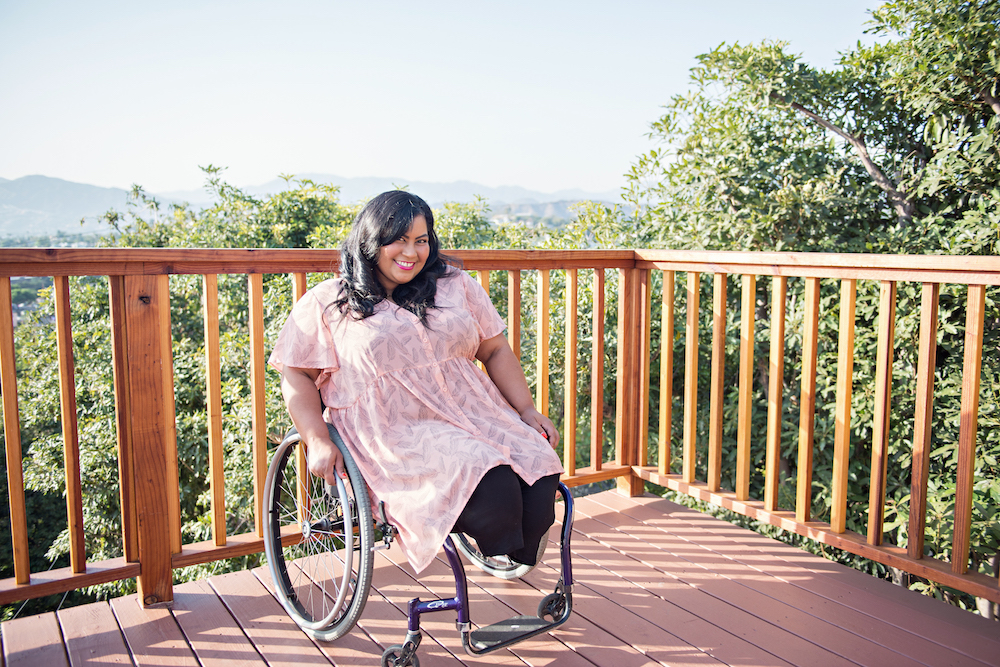
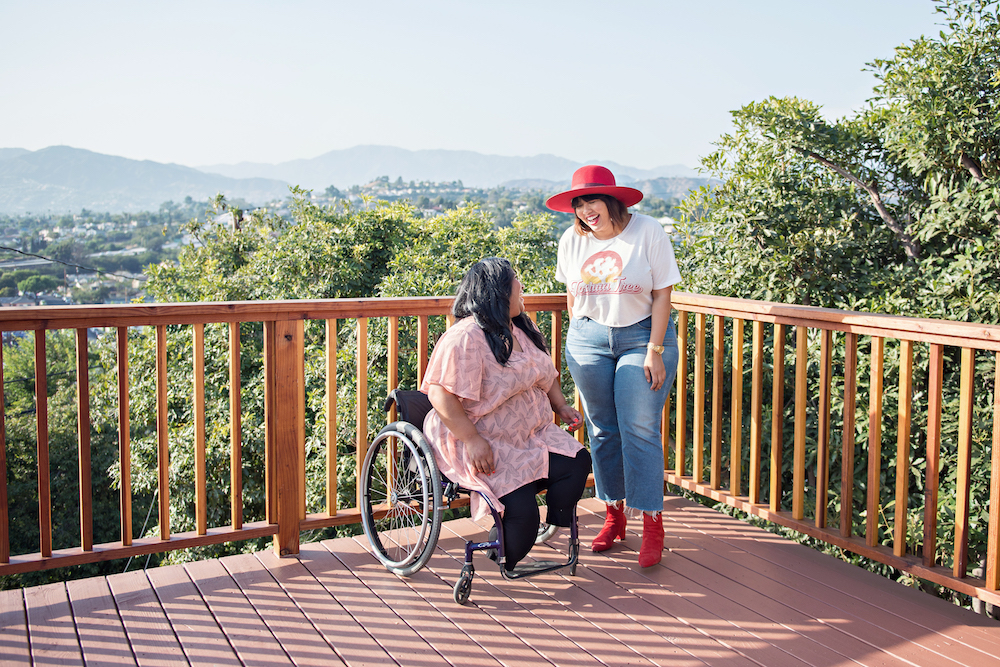
G: How did you start your comedy career?
D: Four years ago, I saw a non-funny male stand-up comedian and I was like “I can do this!” But I started at 30! Imagine having the hubris to be a 30-year-old woman starting comedy because you thought it was easy.
G: I think that’s so cool, it says a lot about who you are.
D: Some people would say I started late, but I have life experience.
G: Do you think comedy can influence and improve culture?
D: Comedy is culture. I think it can move the barometer in the way that any art can change culture. It’s a sign of the times, it shows where we’ve been and can mark where we’re going.
G: It’s such a male-dominated industry. What has your experience been like being a marginalized woman in comedy?
D: Overall my experience has been pretty dope. I’ve been really lucky to start with my best friend, Madison Shepherd, we created Thigh Gap Comedy together. We started at the same time, and we motivated each other to go to open mics.
G: That’s so awesome–were you ever intimidated?
D: No! But I think it’s because when I started comedy I didn’t revere it. I came to it and was like “Oh this just seems fun!” And then I started and I was having fun but then it became serious and I was like “I love doing this and how do I make it my life?” So now there are stakes involved. So certain situations can be nerve-wracking, but my main hang are women, POCs and queer people. That’s my real life friend group, so when I started comedy those are the people who I sought out. Those are the people who were making me laugh. They’re not always catered to, so when we see a line-up that is reflective of us or marketed to us, we’re gonna show up. Like Gentrification, the show I run, is a diversity showcase and our audience comes for that. I don’t super care about making a straight white man laugh. I love it when his arms are crossed and his girlfriend is having the best time. I’m here to make her laugh, not you. Not everything is for you.
G: Speaking of your people, what is your definition of community?
D: Community is your family, it’s your ride or dies, the people who are going to encourage you, give you that tough love and hold you accountable. And the people that are happy for you when you succeed–it’s that whole idea of “a rising tide lifts all boats.” My comedy friends and I are not in competition with each other. We support each other. The more we are represented in media or on stage, the better it is for all of us. The idea of scarcity is BS–it’s designed by the people in power, it doesn’t exist. There’s room for all of us.
G: I always say the same thing! So I know you said you’ve had a pretty great experience in your industry, but do you have any advice on overcoming adversity or career setbacks?
D: I think there’s nothing to do but to do it. It’s about asking yourself what are the steps you have to take to reach the goals you want. Make the list and stop making excuses. For whatever industry you’re in–like for stand-up, you can set goals: you can keep track of how many sets you have, you can ask yourself what new cities you want to perform in next year. It’s being clear about what you want and not just the big nebulous “I want to make it,” but what does that actually mean? Does it mean you want to have your own TV show? Be in a writer’s room?
G: The comedians I know are such hard workers, it’s really inspiring.
D: People see the fun pictures and there are awesome wins, but there’s so much work behind it. There’s late nights and bombing in front of people you respect, and anxiety and anguish.
G: What kind of anxieties come up for you?
D: The stakes are higher. And you can definitely have BS mean voices in your head, it’s about finding a way to turn that down. They don’t help. Find a way to turn it off and do the work.
G: I love that advice–focusing on the work itself to help overcome any naysayers or even your own anxiety. So you mentioned your group is called Thigh Gap Comedy–why did you choose that name? Do you find freedom in making fun of yourself?
D: It’s okay to laugh at yourself! I’m ridiculous. For me, it’s part of my acceptance and process. I’m plus size, I’m disabled, I’m Latina. There’s a lot going on. There’s humor in my body and my experiences and it’s okay to be me and it’s okay to be this way.
—
Marcy Guevara
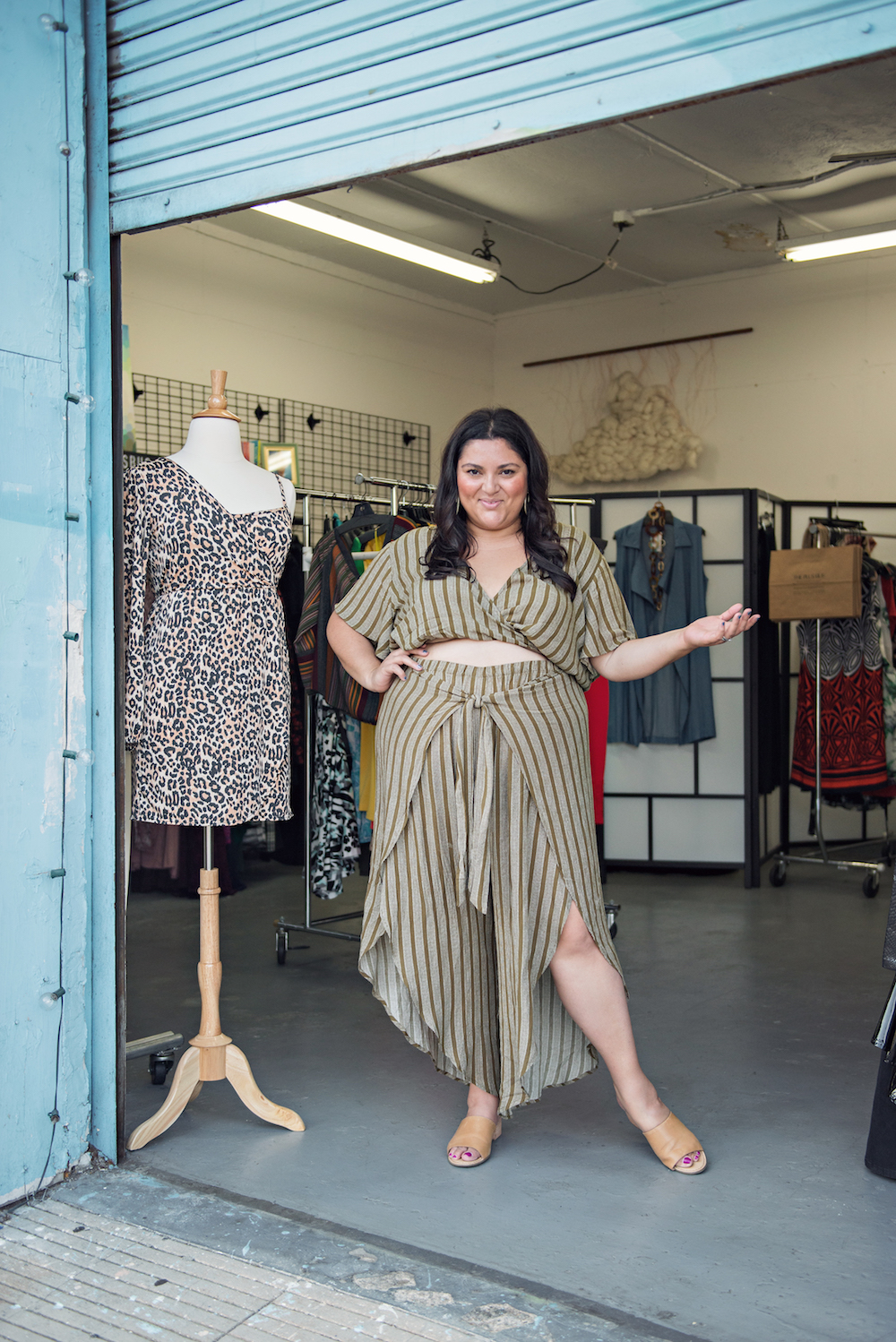
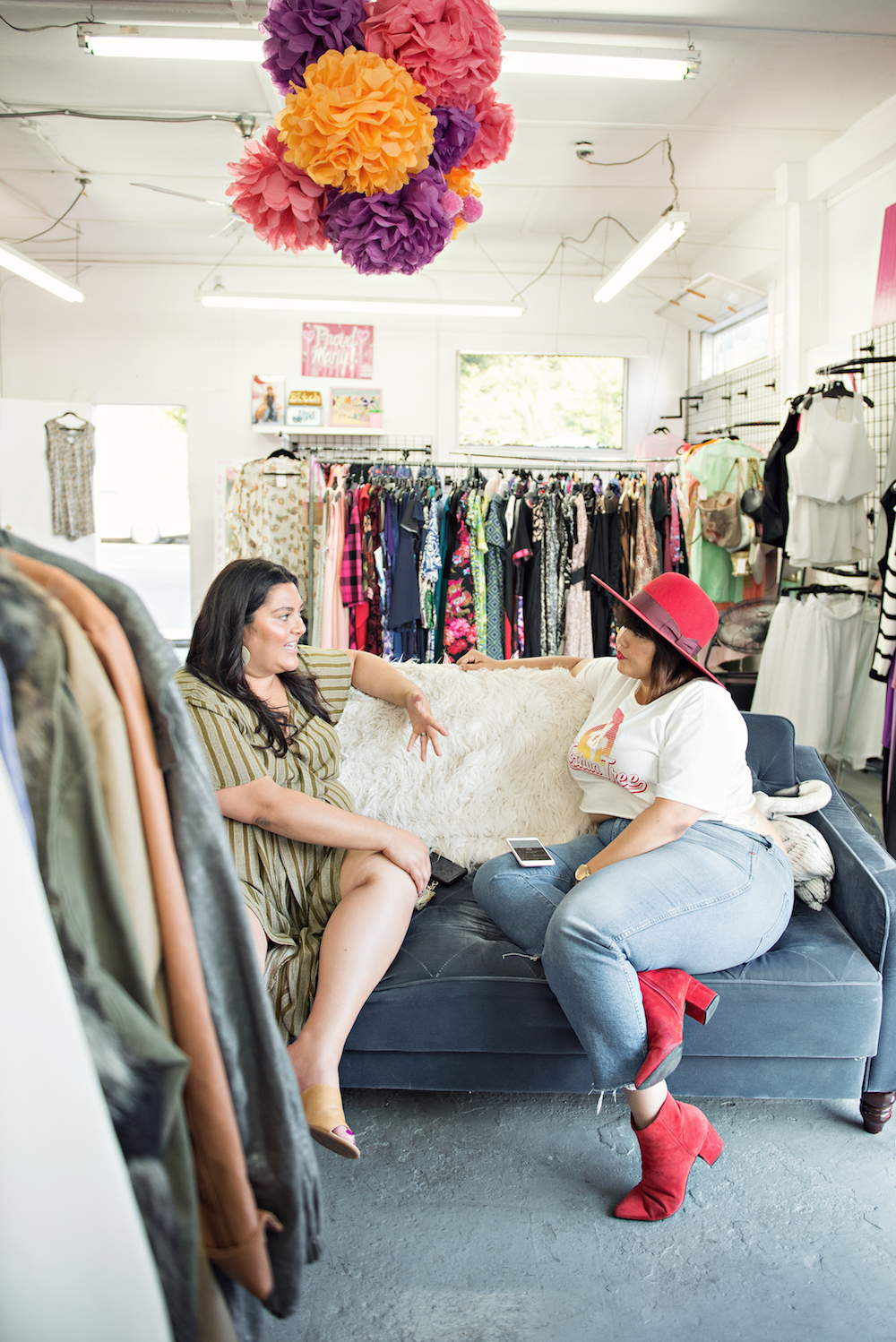
G: Tell us a little about what you do!
M: I’m the co-owner of The Plus Bus boutique in Glassell Park, California, which is a new, used and vintage resale shop.
G: We’ve known each other for a long time, and your career has been so inspiring and interesting to me. I feel like so many people think they have to stick to one thing or one goal, and you prove that you can do so much more.
M: I think it’s a real challenge to figure out how to balance that. I think it’s important to have an emphasis. For me, I’ve always known I wanted to be on TV since I was a young girl. I’m a full-time TV producer, so The Plus Bus is actually my labor of love. And TV really led me to the plus size world. I think if you make decisions based on what you want to be doing, it’s a lot easier to find your path. I think a lot of times people wonder why they’re not more successful at something but they don’t really make the decisions that lead to what they want to be doing. If you want to be a comedian but you don’t go to open mics, then you don’t want it. So for me, I went to a high school and college that had a tv programs. And then when I graduated, it was this weird time where youtube was starting and I was working as a personal assistant in Hollywood and I knew that it wasn’t just going to happen. So I had webcam on my computer and that’s how I started putting stuff on youtube. And someone from a plus size magazine reached out to me and said you should be doing plus size fashion, and what that did was open up this world that I thought was really limited for me. Then through meeting amazing people and being a part of different projects, I’ve been able to accomplish that dream of being on TV and being that go-person in the plus size industry for on-camera work.
G: That’s what I think is so cool. You had a goal, and you knew you wanted to do TV but you found a way to incorporate it with other passions–it’s not like you gave up after not immediately getting your own TV show. Do you have any advice for women overcoming adversity in their careers?
M: Number one: find mentors and be as invested in the mentor as you want them to be invested in you. I think people think mentors are just going to be like giving all this advice and getting you jobs and buying you lunch and that’s not what it is. It’s building a relationship, knowing what questions to ask, being able to take feedback, finding someone who is truly going to be able to do it.
G: How were you introduced to body positivity?
M: I think my journey from plus size fashion to body positivity took a really long time–I don’t think I really connected the dots right away. Every plus size personality or model is not automatically a body positive activist. So for me, seeing the women in the plus size industry who were embracing themselves–it was such a new thing that I had never experienced, but slowly I started to realize I could love my body the way it is today. I still struggle, but for me body positivity has come through the people. I had a really profound experience with Virgie Tovar, I had never heard anyone describe body autonomy in the way she did. I think now especially owning a store where we want to create a positive experience for people to come and shop and not have woes about their bodies or clothes, it’s really been a gift and something I work on daily. So really it has been from listening and learning.
G: That’s amazing, and clothing can be so transformative in a way that leads to body positivity.
M: Definitely. I’ve always understood the power of clothes and how they can contribute to your confidence. I went through a phase when everything I wore was too big, but now I wear things that make me feel good and I understand the power clothing has. If that’s the first step you take, to stop wearing stuff that makes you feel bad, that’s huge.
G: Definitely. And I feel like The Plus Bus is obviously about fashion but it’s also really about community.
M: Community is the only reason we’re really here, we don’t exist without the community. We have met some amazing people, and most importantly, the average woman. We are often her first stop on the body positive train. We provide a place where like-minded people can come and connect over clothes, over comedy, over karaoke…we try to provide a community space where anyone can have an event–we’ve had a spa day right here in the shop. We also have Facebook Live sales every Wednesday night and we have people tell us there’s no one like us in their town.
G: Being in LA and surrounded by the plus size industry, I forget how most people still don’t have access to a lot of this.
M: Yes! Number one is the lack of accessibility to clothing, and that’s why we have a brick and mortar store and why we work so hard to keep it alive in an online world! We have it hard in LA but other parts of the country have even fewer options and the body positive community isn’t necessarily as big. We feel like once you embrace yourself, your body, your clothes…you can really experience a transformation–and now we live that message every day.
This post was made in partnership with Uber.
